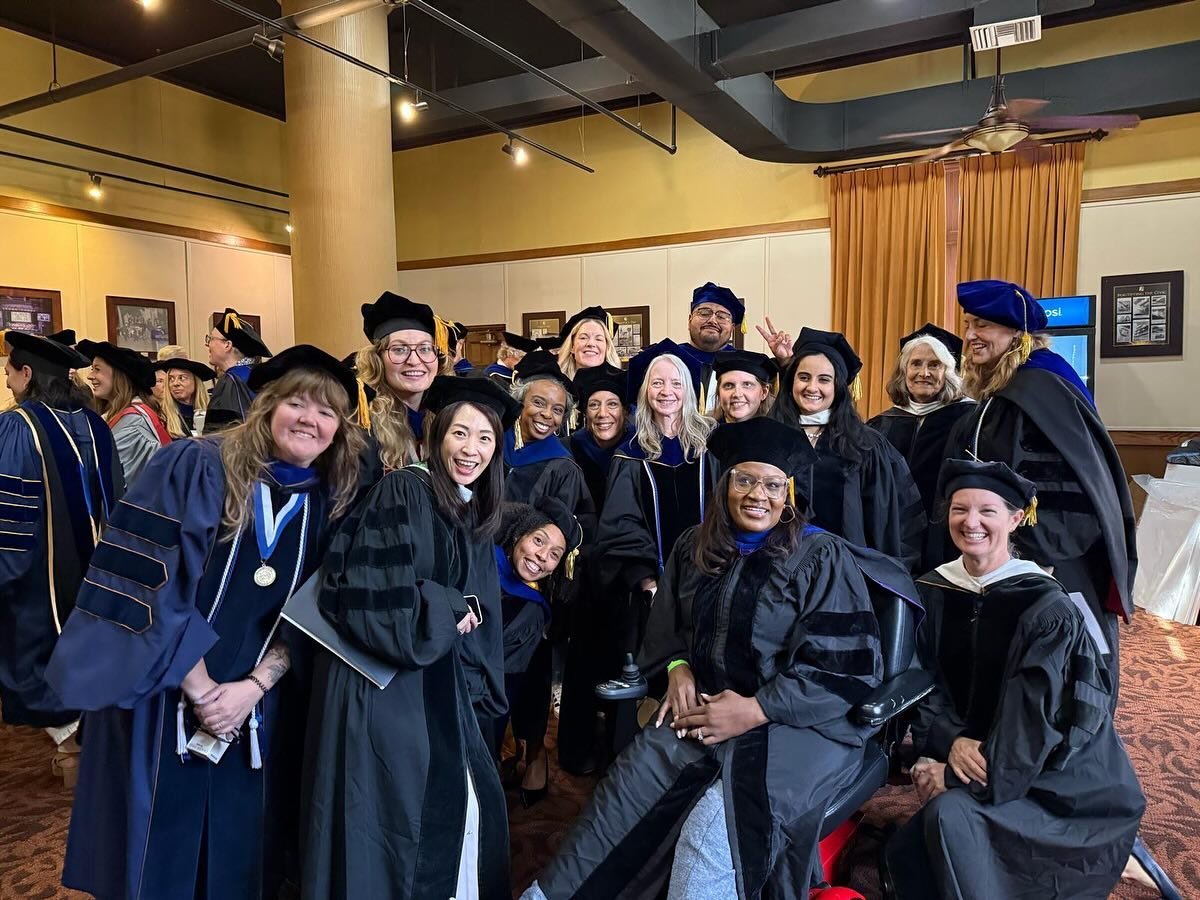
PhD in Counselor Education and Supervision
Take Your Counseling Career to New Heights!
In this PhD in Counselor Education and Supervision program, you will be part of the next generation of leaders moving the counseling profession forward by training new counselors and supervisors, researching effective clinical interventions, and providing influential leadership in organizations.
The PhD in Counselor Education and Supervision program aims to prepare doctoral students to become culturally-affirming counselor educators and supervisors.
PhD in Counselor Education and Supervision
Prepare to Lead the Future of Counseling Education and Supervision
The PhD in Counselor Education and Supervision program strives to advance the counseling profession into the future by training leaders who promote anti-oppressive pedagogy, scholarship, supervision, advocacy, and practice.
The curriculum and educational experiences, such as our innovative multiple article dissertation and internship program, are designed to prepare you for the real, day-to-day work of counselor educators.
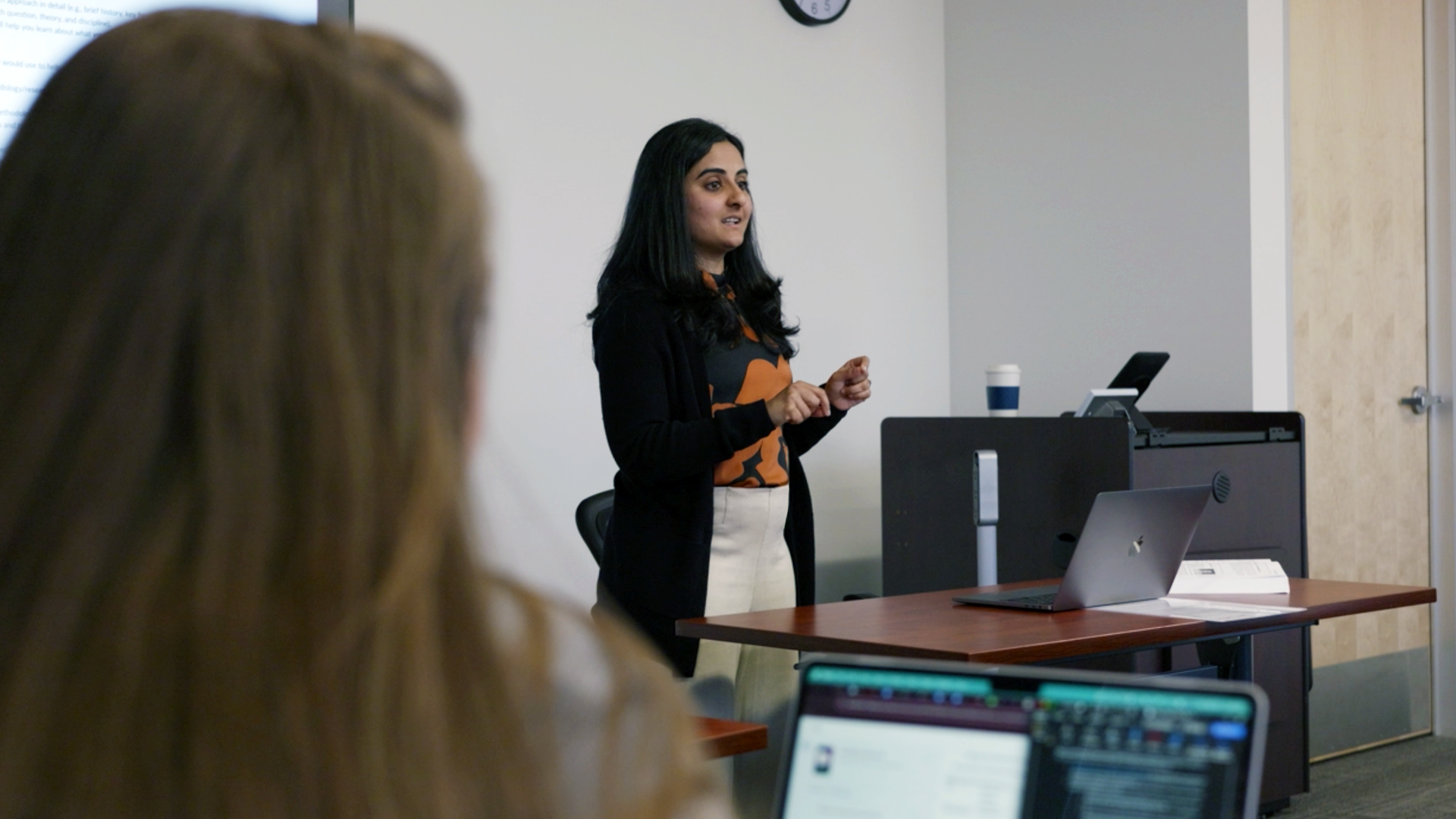
What Can You Do with a PhD in Counselor Education and Supervision?
Teaching:Graduate-level teaching and counselor preparation.
Research & Scholarship: Build on mental health knowledge through research.
Transfer-Friendly: Bring up to 135 credits and finish your degree faster.
Supervision: Supervise the next generation of counselors.
Leadership & Advocacy: In professional organizations, community agencies, K-12 schools, and higher education settings
Explore more about our Counseling Department, where you’ll discover how we cultivate future leaders and innovators in the counseling field.
View Counseling Faculty Here
Built for Licensure and
Real-World Impact
Graduates with a PhD in Counselor Education and Supervision work as advanced level clinicians and supervisors, counseling program faculty, and administrators in higher education, K-12 organizations, and community agencies.
Our internship options and personalized research plan will allow you to prepare yourself for multiple career options.
67%
of students either employed or continuing to graduate school, our alumni thrive in fields like human resources, counseling, and business.
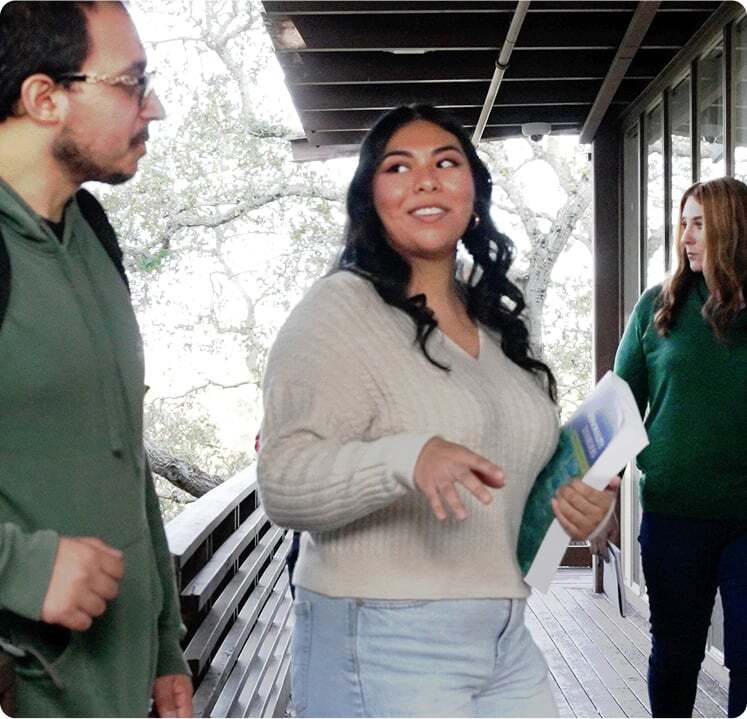
Where Our Graduates Lead
Graduates of Palo Alto University’s PhD in Counselor Education & Supervision are equipped to lead across a wide range of educational and clinical settings. With a strong foundation in culturally responsive pedagogy, supervision, and leadership, our alumni are making an impact as:
- University and college faculty shaping the next generation of counselors
- Clinical supervisors and directors in mental health organizations
- K–12 and higher ed administrators driving equity-focused change
- Advocates and consultants influencing counseling policy and professional standards
From research labs to leadership roles, our graduates carry the tools, experience, and cultural humility to lead the profession forward.
Program Highlights
Leadership Focus
Flexible Learning
Research Impact

Who Should Apply?
Licensed Professional Counselors
Graduates of CACREP-Accredited Counseling Programs
School Counselors
Marriage and Family Counselors
Associate Professional Clinical Counselors or Post-Graduate Counselors Working Towards Licensure
Application Deadline: Rolling Admission through July, 2026
Apply by: January 4, 2026
Learn More about our Counseling Dept
Learn More“When I heard PAU was starting the Counselor Education and Supervision PhD program, I knew it was for me. I immediately applied because I wanted to continue my journey and make an even bigger impact.”

Maggie Tai
“I had been waiting for the PhD program in Counselor Education to start at PAU. When it finally did, I knew it was the perfect fit for me because of the teaching opportunities and the structure of the program.”
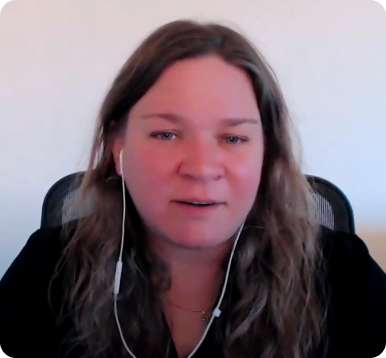
Jackie Grapa
“I decided to wait for PAU’s PhD CES program because it offered exactly what I was looking for—flexibility, research opportunities, and teaching from the start. It was worth the wait.”

Jackie Grapa
“PAU came highly recommended for its strong internship placements and industry connections, which made it an easy choice for me.”

Maggie Tai
“The reason I chose PAU is because I found a true sense of belonging here, and there's this focus on a small cohort where you have a great student to faculty ratio. And to me, that was quite important. That's the support I needed. You're made to feel welcome from day one.”
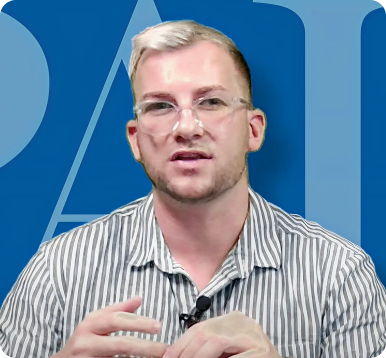
David Rouxel PhD in Clinical Psychology Student
“The hope PAU gave me. It has been indescribable, because I didn't think I would be where I am today and, thanks to PAU, like PAU made that happen. So they're definitely living up to their mission.”
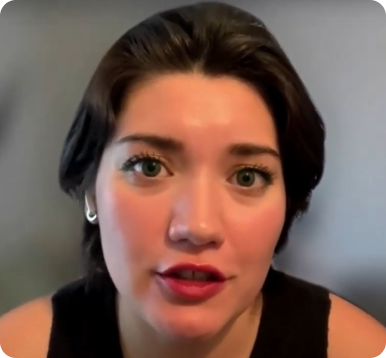
Javi Garces BS in Psychology and Social Action Student
“We have a culture here in the University of support among cohorts and students and even across different cohorts. That is something that also is very helpful. And I think that the university actively stimulates these types of spaces. Having a sense of community is one of the major assets that you get here at PAU.”

Michel Rattner PhD in Clinical Psychology Student
“I think that PAU saw my merits as a professional, that's a big opportunity I will be grateful for all my life.”

Michel Rattner PhD in Clinical Psychology Student
Learn More About our Counseling Department and Expert Faculty
This program is designed with working counseling professionals in mind.
Classes are scheduled one to two days a week, and will be held on campus or synchronously online.
Our faculty have been leaders in online counselor education for many years and have advanced skills in facilitating classes online.
The program is designed to be completed in three years (9 quarters, excluding summers). Click here to view the CES Degree Plan.
Admissions Requirements
Applicants must hold a bachelor's degree from a regionally-accredited institution or the international equivalent.
Applicants must hold a master’s degree in counseling. Additionally, applicants must have successfully completed masters-level core curriculum aligned with CACREP curriculum standards as well as content in at least one CACREP-aligned specialty area.
Applicants must be a licensed mental health counselor, or be license-eligible. In addition to the required degrees, we recommend applicants have work experience in the counseling field and experience with research.
F-1 international students are ineligible to apply. If you hold another type of non-immigrant status, please contact International Student Services.
GRE scores are not required and will not be considered in the review of applications, even if students provide them.
Recommended GPA
We strongly recommend applicants have at least a 3.0 GPA.
Transfer Credit
TRANSFER CREDIT POLICY
Graduate Level: Only graduate level courses are acceptable for transfer credit. A graduate level course is any course for which a student received graduate credit at their previous institution(s).
Acceptable Grades: A grade of “B” or better is required in the graduate level course to be eligible for transfer credit.
Accreditation: Previous graduate work must have been completed at a CACREP accredited Counselor Education and Supervision program.
Deadline for Requesting Transfer Credit: Requests for review of transfer credit must be submitted by Aug 1 of the year the student plans to enroll in the CES program.
Maximum Credit Awarded: A maximum of 13.5 quarter units or 9 semester units may be transferred into the CES program.
Transfer Unit Equivalencies: A student will be awarded the number of units the transferred course is equal to at Palo Alto University, which uses a quarter system. A 3 semester unit course will be awarded as a 4.5 quarter unit credit. A transferred course must be equal to or greater than the number of units of the corresponding CES course.
Time Limit for Transfer Credit: In order to be eligible for transfer credit, the course must have been completed within five years of the student’s matriculation at Palo Alto University.
Transferable Courses: Students applying for review of transfer coursework should indicate which course(s) they are applying to waive. It is not guaranteed that a course will be eligible for transfer credit.
Appeals and Exceptions: A student may appeal transfer credit decisions in writing to the Department Curriculum Committee. Appeals must be submitted within one week after the incoming student is notified of the outcome of their transfer credit application.
Please note that because the CES program is billed on a flat-rate, quarterly tuition schedule, transfer or waiver of units will not result in a reduced tuition rate. Additionally, because of our cohort model with required courses in each quarter, your time to completion of the program will not be reduced; however, students who are allowed to waive required coursework may have the luxury of more time available for supplemental internship, research assistantships, paid employment, etc.
Professional and Academic References
Applicants for the PhD in Counselor Education and Supervision program will provide three (3) professional references from individuals who have served in a supervisory, evaluative (e.g., professor/advisor), or managerial relationship with the applicant.
References must have a current or recent (within the past two years) relationship with the applicant. Of the three references, one must be from a current or most recent clinical supervisor.
References from colleagues, friends, personal counselors, and/or family members are not permitted.
Tuition & Fees
Strong Job Growth for LPCCs & MFCCs Over the next 10 years!
LPCCs: +23% job growth.*
Driven by increasing demand in healthcare, education, and private practice.
MFCCs: +16% job growth.*
Rising opportunities in hospitals, outpatient care, and schools.
Margaret Lamar, PhD, Associate Department Chair
Learn MoreHeading Here
Our program is designed to help students meet the following goals. Graduates will know how to design engaging and culturally-affirming curriculum that is relevant to counselors working in diverse communities and digital mental health. They will also be able to effectively utilize culturally relevant models of supervision and demonstrate skill in evaluation and dispositional remediation.
Graduates will develop clear research agendas and publish rigorous, culturally relevant research that promote the counseling profession. They will understand how to lead with cultural humility and demonstrate leadership excellence with specific skills in administration, accreditation management, program evaluation, and advocacy.
Graduates will be able to counsel clients using culturally affirming counseling practice utilizing relevant theories and evidence-based counseling practices.
Browse Our Curriculum - No Summer Courses
Program Overview Download Printable Brochure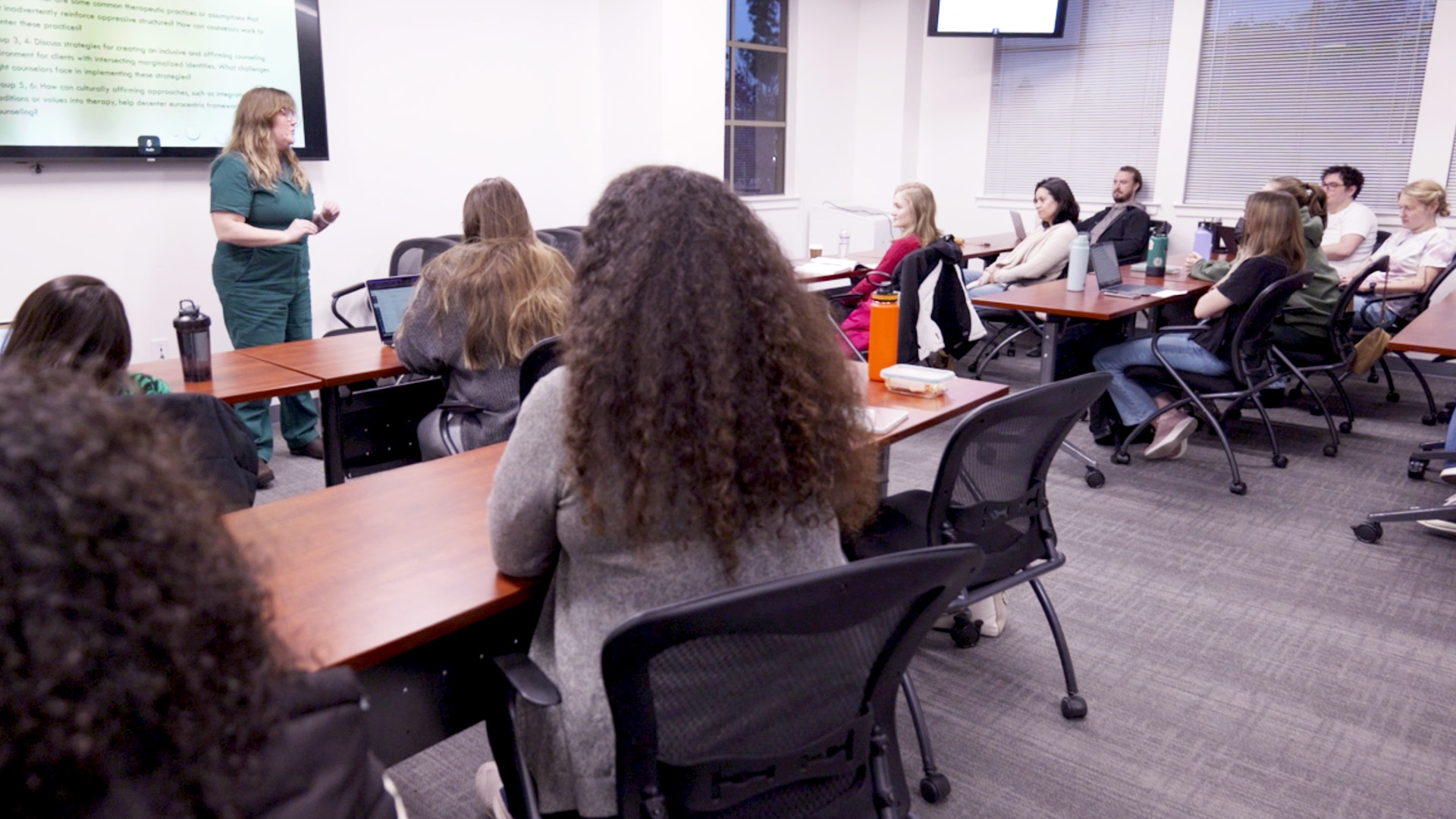
Five Reasons to Make PAU Your Transfer Choice
- Affordable & Accredited — Flexible & Fast
- 80% Graduation Rate (Compared to 60% National Average)
- Transfer Friendly Pathways: Community College
- 50-Year Legacy of Psychology Education and 16-Year Legacy of Online Education
- Psychology Majors with 21st Century Relevance
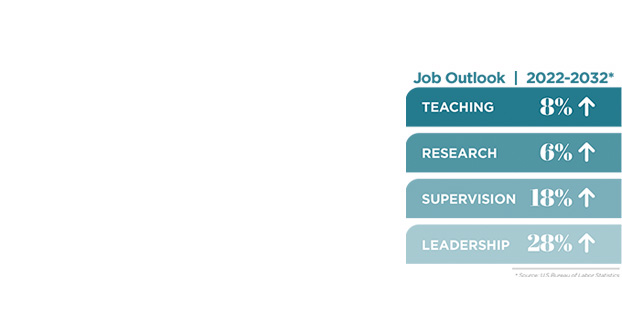
BS in Psychology
Admissions Requirements
+Applicants must hold a bachelor's degree from a regionally-accredited institution or the international equivalent. For applicants to the MA in Clinical Mental Health Counseling Online program, you must be located in a state in which we are authorized to provide online education. While no prerequisites are required to apply, we strongly recommend applicants to have related volunteer or work experience in the mental health field.
GRE scores are not required for admissions to PAU master's degree programs. GRE scores will not be considered in the review of applications, even if students provide them.
Palo Alto University offers students a multicultural focus that emphasizes culture, social justice, and families that students experience in weekly live classes. Students benefit from the latest academic research and clinical approaches while tailoring their experience to the culture and community in which they live and practice, all in a program format that fits into their busy lives.
- The hybrid program is offered weekday evenings. Courses are held on the PAU campuses or live via Zoom.
- Classes take place Monday-Thursday evenings from 4-6 pm or 6-8 pm or 6-8:50 pm, depending on the cohort.
- All skill-based clinical work is done in an appropriate clinical or classroom setting
With the time savings from your online classes, you will be able to take three classes per quarter – which means earning your degree in just nine quarters. Staying local while participating in a distance learning (online) master’s degree program gives students the best of both worlds.
Online: Distance Learning Format
+Applicants must hold a bachelor's degree from a regionally-accredited institution or the international equivalent. For applicants to the MA in Clinical Mental Health Counseling Online program, you must be located in a state in which we are authorized to provide online education. While no prerequisites are required to apply, we strongly recommend applicants to have related volunteer or work experience in the mental health field.
GRE scores are not required for admissions to PAU master's degree programs. GRE scores will not be considered in the review of applications, even if students provide them.
Palo Alto University offers students a multicultural focus that emphasizes culture, social justice, and families that students experience in weekly live classes. Students benefit from the latest academic research and clinical approaches while tailoring their experience to the culture and community in which they live and practice, all in a program format that fits into their busy lives.
- The hybrid program is offered weekday evenings. Courses are held on the PAU campuses or live via Zoom.
- Classes take place Monday-Thursday evenings from 4-6 pm or 6-8 pm or 6-8:50 pm, depending on the cohort.
- All skill-based clinical work is done in an appropriate clinical or classroom setting
With the time savings from your online classes, you will be able to take three classes per quarter – which means earning your degree in just nine quarters. Staying local while participating in a distance learning (online) master’s degree program gives students the best of both worlds.
MA in Counseling Residencies: Residency Information
+Applicants must hold a bachelor's degree from a regionally-accredited institution or the international equivalent. For applicants to the MA in Clinical Mental Health Counseling Online program, you must be located in a state in which we are authorized to provide online education. While no prerequisites are required to apply, we strongly recommend applicants to have related volunteer or work experience in the mental health field.
GRE scores are not required for admissions to PAU master's degree programs. GRE scores will not be considered in the review of applications, even if students provide them.
Palo Alto University offers students a multicultural focus that emphasizes culture, social justice, and families that students experience in weekly live classes. Students benefit from the latest academic research and clinical approaches while tailoring their experience to the culture and community in which they live and practice, all in a program format that fits into their busy lives.
- The hybrid program is offered weekday evenings. Courses are held on the PAU campuses or live via Zoom.
- Classes take place Monday-Thursday evenings from 4-6 pm or 6-8 pm or 6-8:50 pm, depending on the cohort.
- All skill-based clinical work is done in an appropriate clinical or classroom setting
With the time savings from your online classes, you will be able to take three classes per quarter – which means earning your degree in just nine quarters. Staying local while participating in a distance learning (online) master’s degree program gives students the best of both worlds.
Tuition & Fees
+Applicants must hold a bachelor's degree from a regionally-accredited institution or the international equivalent. For applicants to the MA in Clinical Mental Health Counseling Online program, you must be located in a state in which we are authorized to provide online education. While no prerequisites are required to apply, we strongly recommend applicants to have related volunteer or work experience in the mental health field.
GRE scores are not required for admissions to PAU master's degree programs. GRE scores will not be considered in the review of applications, even if students provide them.
Palo Alto University offers students a multicultural focus that emphasizes culture, social justice, and families that students experience in weekly live classes. Students benefit from the latest academic research and clinical approaches while tailoring their experience to the culture and community in which they live and practice, all in a program format that fits into their busy lives.
- The hybrid program is offered weekday evenings. Courses are held on the PAU campuses or live via Zoom.
- Classes take place Monday-Thursday evenings from 4-6 pm or 6-8 pm or 6-8:50 pm, depending on the cohort.
- All skill-based clinical work is done in an appropriate clinical or classroom setting
With the time savings from your online classes, you will be able to take three classes per quarter – which means earning your degree in just nine quarters. Staying local while participating in a distance learning (online) master’s degree program gives students the best of both worlds.
General Grad Degree Requirements
+Applicants must hold a bachelor's degree from a regionally-accredited institution or the international equivalent. For applicants to the MA in Clinical Mental Health Counseling Online program, you must be located in a state in which we are authorized to provide online education. While no prerequisites are required to apply, we strongly recommend applicants to have related volunteer or work experience in the mental health field.
GRE scores are not required for admissions to PAU master's degree programs. GRE scores will not be considered in the review of applications, even if students provide them.
Palo Alto University offers students a multicultural focus that emphasizes culture, social justice, and families that students experience in weekly live classes. Students benefit from the latest academic research and clinical approaches while tailoring their experience to the culture and community in which they live and practice, all in a program format that fits into their busy lives.
- The hybrid program is offered weekday evenings. Courses are held on the PAU campuses or live via Zoom.
- Classes take place Monday-Thursday evenings from 4-6 pm or 6-8 pm or 6-8:50 pm, depending on the cohort.
- All skill-based clinical work is done in an appropriate clinical or classroom setting
With the time savings from your online classes, you will be able to take three classes per quarter – which means earning your degree in just nine quarters. Staying local while participating in a distance learning (online) master’s degree program gives students the best of both worlds.
Cohort Model
PAU’s on-campus format uses a cohort system. You will be assigned to a group of students who will have the same schedule and sequence of courses for their entire program. You will be enrolled continuously and to complete your degree on schedule with their cohort.
Why Cohorts?
Support and openness – you will study together, encouraging and assisting others when needed. You will also develop the familiarity and trust to discuss tough issues and personal experiences.
Cohort Model
PAU’s on-campus format uses a cohort system. You will be assigned to a group of students who will have the same schedule and sequence of courses for their entire program. You will be enrolled continuously and to complete your degree on schedule with their cohort.
Why Cohorts?
Support and openness – you will study together, encouraging and assisting others when needed. You will also develop the familiarity and trust to discuss tough issues and personal experiences.
Cohort Model
PAU’s on-campus format uses a cohort system. You will be assigned to a group of students who will have the same schedule and sequence of courses for their entire program. You will be enrolled continuously and to complete your degree on schedule with their cohort.
Why Cohorts?
Support and openness – you will study together, encouraging and assisting others when needed. You will also develop the familiarity and trust to discuss tough issues and personal experiences.
Cohort Model
PAU’s on-campus format uses a cohort system. You will be assigned to a group of students who will have the same schedule and sequence of courses for their entire program. You will be enrolled continuously and to complete your degree on schedule with their cohort.
Why Cohorts?
Support and openness – you will study together, encouraging and assisting others when needed. You will also develop the familiarity and trust to discuss tough issues and personal experiences.
Online & Hybrid Learning Format
The hybrid program is offered weekday evenings. Courses are held on the PAU campuses or live via Zoom.
Classes Take Place:
Monday-Thursday Evenings
4-6PM PST or 6-8PM PST or 6-8:50PM PST (Depending on Cohort)
All skill-based clinical work is done in an appropriate clinical or classroom setting. And with the time savings from your online classes, you will be able to take three classes per quarter – and that means earning your degree in just nine quarters.
Staying local while participating in a distance learning (online) master’s degree program gives students the best of both worlds.
Palo Alto University offers students a multicultural focus that emphasizes culture, social justice, and families that students experience in weekly live classes. Students benefit from the latest academic research and clinical approaches while tailoring their experience to the culture and community in which they live and practice, all in a program format that fits into their busy lives.
The hybrid program is offered weekday evenings. Courses are held on the PAU campuses or live via Zoom.
Classes Take Place:
Monday-Thursday Evenings
4-6PM PST or 6-8PM PST or 6-8:50PM PST (Depending on Cohort)
All skill-based clinical work is done in an appropriate clinical or classroom setting. And with the time savings from your online classes, you will be able to take three classes per quarter – and that means earning your degree in just nine quarters.
Staying local while participating in a distance learning (online) master’s degree program gives students the best of both worlds.
Palo Alto University offers students a multicultural focus that emphasizes culture, social justice, and families that students experience in weekly live classes. Students benefit from the latest academic research and clinical approaches while tailoring their experience to the culture and community in which they live and practice, all in a program format that fits into their busy lives.
How to Apply
PAU uses the American Psychological Association’s (APA), Psychology Centralized Application Service (PSYCAS). In preparation for applying, you will need a copy of your transcript(s) available for your review. All materials should be submitted through the PSYCAS system, not directly to the PAU Admissions Office.
- Online Application via PSYCAS
- Application Fee
- Official Transcripts
- Resume or CV
- Three Letters of Recommendation
- Statement of Purpose
Once Your Application is Complete
Based on an initial review of PhD applications, qualified applicants are invited to participate in our PhD interview day to meet faculty and learn more about the program and co-curricular offerings. Interviews are conducted entirely online.
Interviews are meant to be a two-way conversation between applicants and the University. The University seeks students who are an excellent fit for our classrooms, labs and greater community, and who represent the diversity of our nation and our world.
But interviews are also an opportunity for applicants to evaluate PAU and the PhD in Counselor Education and Supervision program. It is important that you identify that PAU is aligned with your values, your research interests and your career aspirations. For that reason we encourage you to engage, ask questions, and reflect carefully on your experience.
Candidates will demonstrate:
- An academic aptitude for doctoral-level study
- Sufficient related previous professional experience
- Fitness for the profession, including self-awareness and emotional stability
- Oral and written communication skills
- Cultural sensitivity and awareness
- Potential for scholarship, professional leadership, and advocacy
- Evidence of the student's self-motivation and ability to work independently
- Comfort using the technological tools and platforms required for coursework
PAU aims to attract and educate students who are distinguished by their academic achievement, capacity for critical thinking, interpersonal skills, motivation to become exceptional clinicians, and a commitment to service and to serving a diverse population. Given the rigor of the program and the University's core values, the PhD program seeks students who embody:
- Unshakable ethical standards
- Resilience
- Cultural humility
- Openness to learning and to others' lived experiences
- A belief in the inherent dignity of all humans
- A desire to improve the human condition
- Self-awareness
- Seeks and is open to constructive feedback
- Empathy and kindness
Each application is given a comprehensive review by the admissions committee. All aspects of the application, including academic record, professional and research experience, and strong recommendations are qualities carefully considered. In addition, PAU actively seeks to recruit and enroll a student body that is both highly qualified and richly diverse. Thus, factors such as the quality of the early educational environment, socioeconomic status, culture, and life or work experiences are also considered.
The primary form of communication in the admissions process is email, and we will use the email address you list on your application.All students will receive a decision, and we will provide updates as often as possible.
Core-Curriculum
Developing Inclusive & Ethical Approaches to Supervision & Gatekeeping (Fall - COUN713)
This course introduces students to theories and practice of supervision in counseling. A focus of this course is understanding the role, responsibilities, and skills required of a clinical supervisor and applying that knowledge by concurrently co-supervising in a master’s counseling skills course. Theories of counselor development will be introduced, along with approaches to evaluation and issues of ethics in clinical supervision.
A focus of this course will be helping students develop a personal style of clinical supervision that is culturally relevant. Strategies of evaluation, remediation, and gatekeeping in supervision will be further developed and applied. This course will also cover multiple modalities of supervision and students will learn to conduct effective supervision in virtual synchronous platforms.
Prerequisite: none
Units: 4.5 Units
Creating Transformative Educational Experiences Through Andragogy (Winter - COUN702 )
This doctoral level course introduces and applies adult learning theories. Students in the course will learn about the role and responsibilities of educating counselors, models of adult development and learning, course development approaches, and evidence-based teaching methods relevant to counselor education.
Students will learn to develop culturally relevant coursework that effectively assesses learning outcomes; specifically, they will be able to identify student learning outcomes (SLO) for a course, to develop syllabi that link SLOs to assessments, and to create class activities and facilitation strategies that effectively foster and evaluate learning.
This course will also introduce culturally responsive approaches for the delivery of courses in a variety of modalities. Students will be required to co-teach a master’s level counseling course concurrently while taking this course.
Prerequisite: none
Units: 4.5 Units
Advanced Theory, Counseling Skill, and Group Leadership (Spring - COUN717)
This advanced course examines culturally responsive approaches to teaching, research, supervision, and leadership. By the end of this course, students will also understand decolonization of counselor education curriculum, scholarship, policies, and practices.
They will learn how to facilitate difficult conversations around power and privilege.
Prerequisite: COUN711, COUN702, COUN713
Units: 4.5 Units
Program Leadership: Assessment, Accreditation & Inclusive Management (Fall - COUN723)
This doctoral level course will prepare students for leadership roles in counselor education programs by developing their knowledge of program leadership responsibilities. It will introduce students to knowledge about the standards and process of accreditation.
Students will learn how to apply theories of leadership and management in counseling programs and organizations. Another focus of this course is learning about current issues in the counseling profession and applying those issues to the daily work of leaders in counseling programs, including learning strategies of advocacy for these issues on behalf of students, clients, and counseling professionals.
Prerequisite: Higher Education Leadership, Organizational Development, and Advocacy
Units: 4.5
Advanced Supervision Doctoral Seminar (Winter - COUN733)
The topic of this course will be focused on specific practices in supervision. Students will gain knowledge about specific supervision approaches. Current issues in supervision and counselor education will be covered.
Prerequisite: COUN713
Units: 3 Units
Advanced Andragogy & Educational Development Doctoral Seminar (Spring - COUN731)
Provide succinct, clear answers in your FAQ accordion, ensuring the most relevant information is front and center to quickly address common queries and concerns of your audience.
Introduction to CES Research & Establishing a Strong Research Agenda (Fall - COUN711)
This course aims to acquaint students with the overall research process, assist them in discovering a feasible, publishable, and fundable research topic as well as develop a research proposal for conference presentation and/or grant application.
This course covers a range of topics such as an overview of the research process, academic and professional writing for journal publication, conference presentation and grant application, developing research proposals, and incorporation of diversity, equity, inclusion, and belonging in the research process.
Prerequisite: none
Units: 4.5 Units
Qualitative Methods and Analysis for Counseling Research (Winter - COUN716)
This is an introductory course to the field of qualitative research in counselor education. The course reviews theoretical frameworks, methods of research inquiry, and issues related to the ethical practice of qualitative research (e.g., researcher positionality, representation, and objectivity).
Students will have the opportunity to apply their knowledge by participating in various class activities and exercises that focus on different research methods, such as participant-observation, interviewing, coding, and memoing. Upon completion of the course, students will possess knowledge of qualitative research design, methodology, collection, and analysis.
Prerequisite: COUN711
Units: 4.5 Units
Quantitative Methods and Analysis for Counseling Research (Spring - COUN712)
This is an intermediate course in the design of quantitative research. The course covers a range of topics such as basic statistical concepts, analysis of variance (ANOVA), correlation, multiple regression, Analysis of Covariance (ANCOVA), and nonparametric statistics.
It is important to understand that the course's aim is not to simply provide correct answers to statistical questions. Rather, the emphasis is on understanding the different statistical analyses, selecting the appropriate analysis for specific research inquiries, and accurately interpreting the statistical results.
Prerequisite: COUN711
Units: 4.5 Units
Advanced Quantitative Methods and Analysis for Counseling Research (Fall - COUN714)
This is an advanced course in the design of quantitative research. This course will provide students with in-depth knowledge in scale development and validation processes (e.g., item development, factor analysis, and item response theory).
While the word "advanced" may sound challenging, these analyses are frequently used in reputable counseling journals and students will be provided with plenty of opportunities to apply them into practice.
Prerequisite: COUN711, COUN712
Units: 4.5 Units
Advanced Qualitative Methods and Analysis for Counseling Research (Winter - COUN721)
The purpose of this course is to guide students in designing a small‐scale research study within the field of counselor education. Building from Qualitative I, students will further their philosophical understandings of qualitative inquiry, develop a research proposal, and design a plan for data collection and analysis.
The course will additionally prepare students to develop and submit a research protocol to the PAU Institutional Review Board. Students will also be guided through introspective exploration of their own positionality to facilitate ethical and responsible research practice.
Upon completion of the course, students will have developed an executable qualitative research proposal and possess in-depth knowledge of the ethical and social justice implications of qualitative research.
Prerequisite: COUN711, COUN716
Units: 4.5 Units
Advanced Research Doctoral Seminar (Spring - COUN732)
This research seminar will provide students with additional strategies and practice opportunities for data collection, data analysis, and results- and discussion-writing for quantitative and qualitative methodologies.
This seminar is also an in-depth examination of the strengths and limitations of various quantitative and qualitative research designs.
Thus, additional qualitative and quantitative research methodologies (e.g., consensual qualitative research, single-subject design, and structural equation modeling) will be also introduced and students will be provided with opportunities to apply these methodologies into their interested research topics.
Prerequisite: COUN711, COUN712, COUN714, COUN716, COUN721
Units: 3 Units
Internship and Dissertation
CES Internship (COUN750)
Students taking this class have arranged an internship experience, in coordination with their advisor, in the areas of teaching, supervision, research, counseling, or leadership and advocacy.
This course provides group supervision to students in the course.
Prerequisite: none
Units: 3 – 4.5 Units classes taken over 3 quarters.
Dissertation Preparation (Fall - COUN800)
This course is focused on the development and facilitation of the dissertation process. The instructor will provide individual assistance and discussion, including literature review, hypothesis development, finding a dissertation chair and other committee members, the Institutional Review Board process, proposal preparation, and the proposal defense.
Prerequisite: COUN711, COUN712, COUN716
Units: 4.5 Units
Dissertation (COUN802)
This required dissertation course is taken by 3rd year students working on their dissertations.
Dissertations will be supervised by the student’s dissertation chair.
Prerequisite: none
Units: 19.5 Units

Office of Admissions
At Palo Alto University, we’re eager to help you take the next step in your education. You might be advancing your studies, changing direction, or exploring new opportunities—our Admission and Outreach team is ready to guide you with personalized support.
Please direct all general inquiries to admissions@paloaltou.edu.
